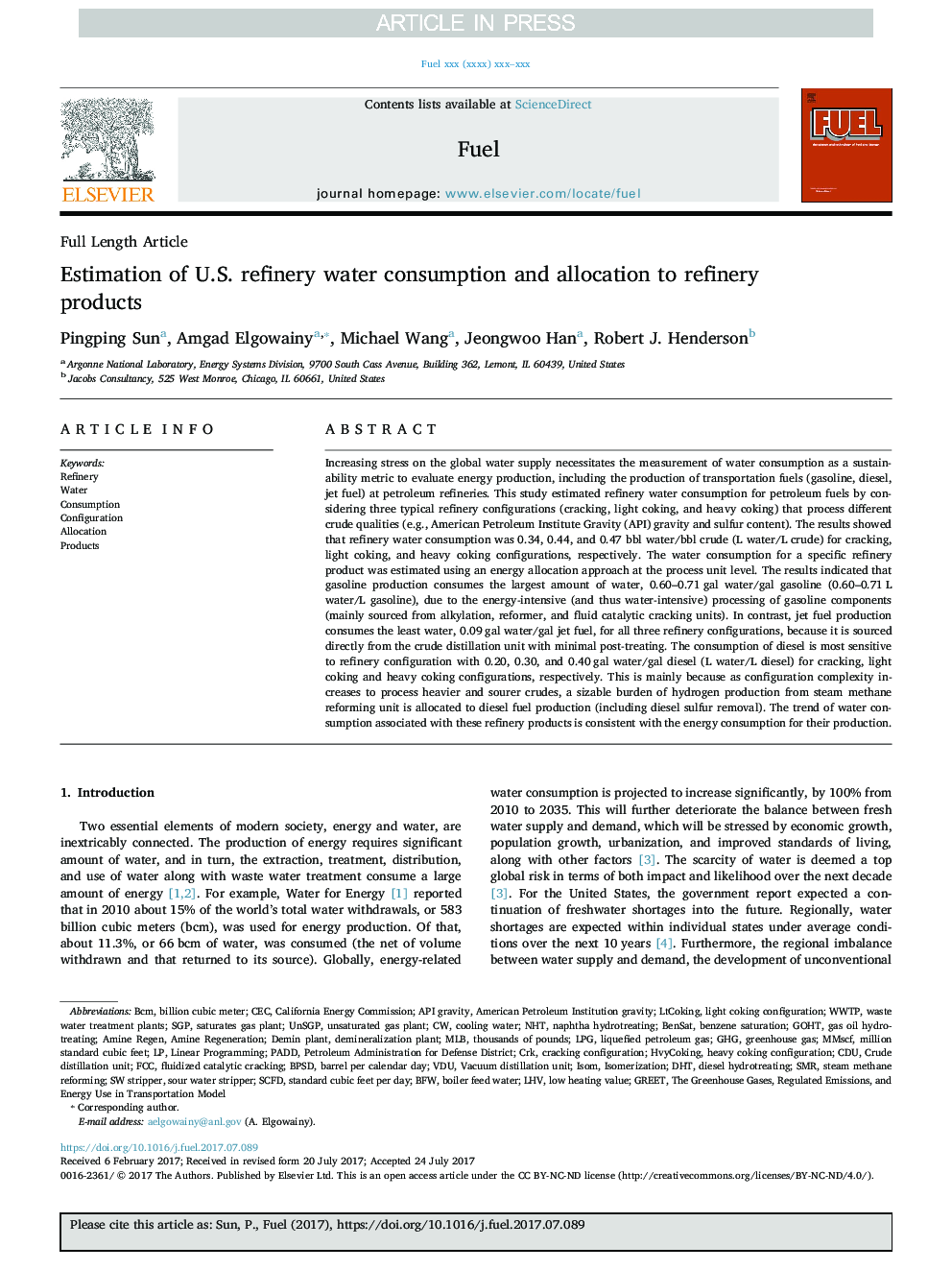| Article ID | Journal | Published Year | Pages | File Type |
|---|---|---|---|---|
| 6631591 | Fuel | 2018 | 16 Pages |
Abstract
Increasing stress on the global water supply necessitates the measurement of water consumption as a sustainability metric to evaluate energy production, including the production of transportation fuels (gasoline, diesel, jet fuel) at petroleum refineries. This study estimated refinery water consumption for petroleum fuels by considering three typical refinery configurations (cracking, light coking, and heavy coking) that process different crude qualities (e.g., American Petroleum Institute Gravity (API) gravity and sulfur content). The results showed that refinery water consumption was 0.34, 0.44, and 0.47 bbl water/bbl crude (L water/L crude) for cracking, light coking, and heavy coking configurations, respectively. The water consumption for a specific refinery product was estimated using an energy allocation approach at the process unit level. The results indicated that gasoline production consumes the largest amount of water, 0.60-0.71Â gal water/gal gasoline (0.60-0.71Â L water/L gasoline), due to the energy-intensive (and thus water-intensive) processing of gasoline components (mainly sourced from alkylation, reformer, and fluid catalytic cracking units). In contrast, jet fuel production consumes the least water, 0.09Â gal water/gal jet fuel, for all three refinery configurations, because it is sourced directly from the crude distillation unit with minimal post-treating. The consumption of diesel is most sensitive to refinery configuration with 0.20, 0.30, and 0.40Â gal water/gal diesel (L water/L diesel) for cracking, light coking and heavy coking configurations, respectively. This is mainly because as configuration complexity increases to process heavier and sourer crudes, a sizable burden of hydrogen production from steam methane reforming unit is allocated to diesel fuel production (including diesel sulfur removal). The trend of water consumption associated with these refinery products is consistent with the energy consumption for their production.
Keywords
SMRVDUSGPNHTIsomMLBCDUCrkBPSDBCMCECDHTLPGBFWAPI gravityLHVWWTPGHGFCCWaterBoiler feed waterCooling waterSteam methane reformingIsomerizationLinear programmingAllocationFluidized catalytic crackingRefineryGREETProductsConsumptionLow heating valueCrude Distillation UnitConfigurationCalifornia Energy Commissionliquefied petroleum gasGreenhouse gaswaste water treatment plants
Related Topics
Physical Sciences and Engineering
Chemical Engineering
Chemical Engineering (General)
Authors
Pingping Sun, Amgad Elgowainy, Michael Wang, Jeongwoo Han, Robert J. Henderson,
